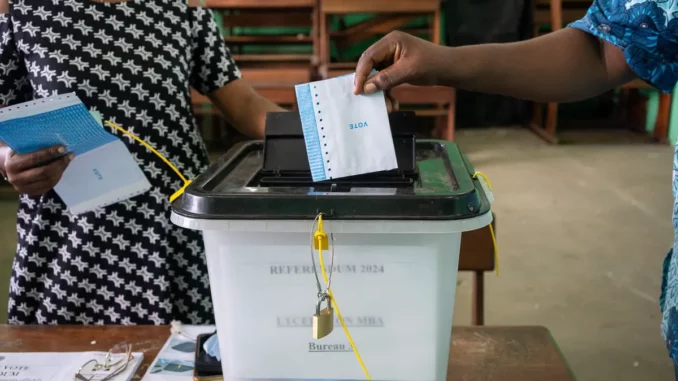
Gabon has overwhelmingly endorsed a new constitution with more than 91 percent approval in Saturday’s referendum, marking a significant shift one year after military forces seized control of the oil-rich nation. The referendum, which attracted 53.5 percent voter turnout, awaits final confirmation from the Constitutional Court.
The approved constitution introduces sweeping reforms designed to prevent dynastic rule, including a seven-year presidential term limit with one renewal possibility, replacing the previous unlimited five-year terms. It explicitly prohibits family succession and eliminates the prime minister position.
These changes follow the 2023 military overthrow of President Ali Bongo Ondimba, whose family had governed Gabon for over four decades. The coup leaders, led by General Brice Clotaire Oligui Nguema, cited concerns about misgovernance and embezzlement threatening national stability.
Despite its OPEC membership and substantial oil export revenue of $6 billion in 2022, Gabon struggles with wealth concentration and high youth unemployment, affecting nearly 40 percent of young adults. The constitutional reforms represent an attempt to address these longstanding governance issues.
The transition reflects broader changes in the former French colony, where public discontent with the Bongo dynasty had grown increasingly evident, culminating in a failed 2019 coup attempt. The new constitution aims to establish more democratic governance while addressing economic disparities.
